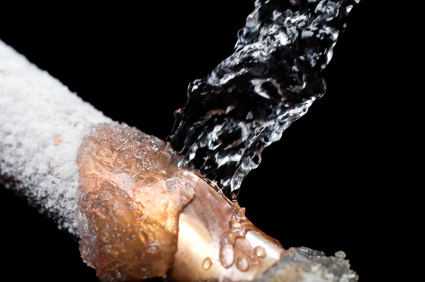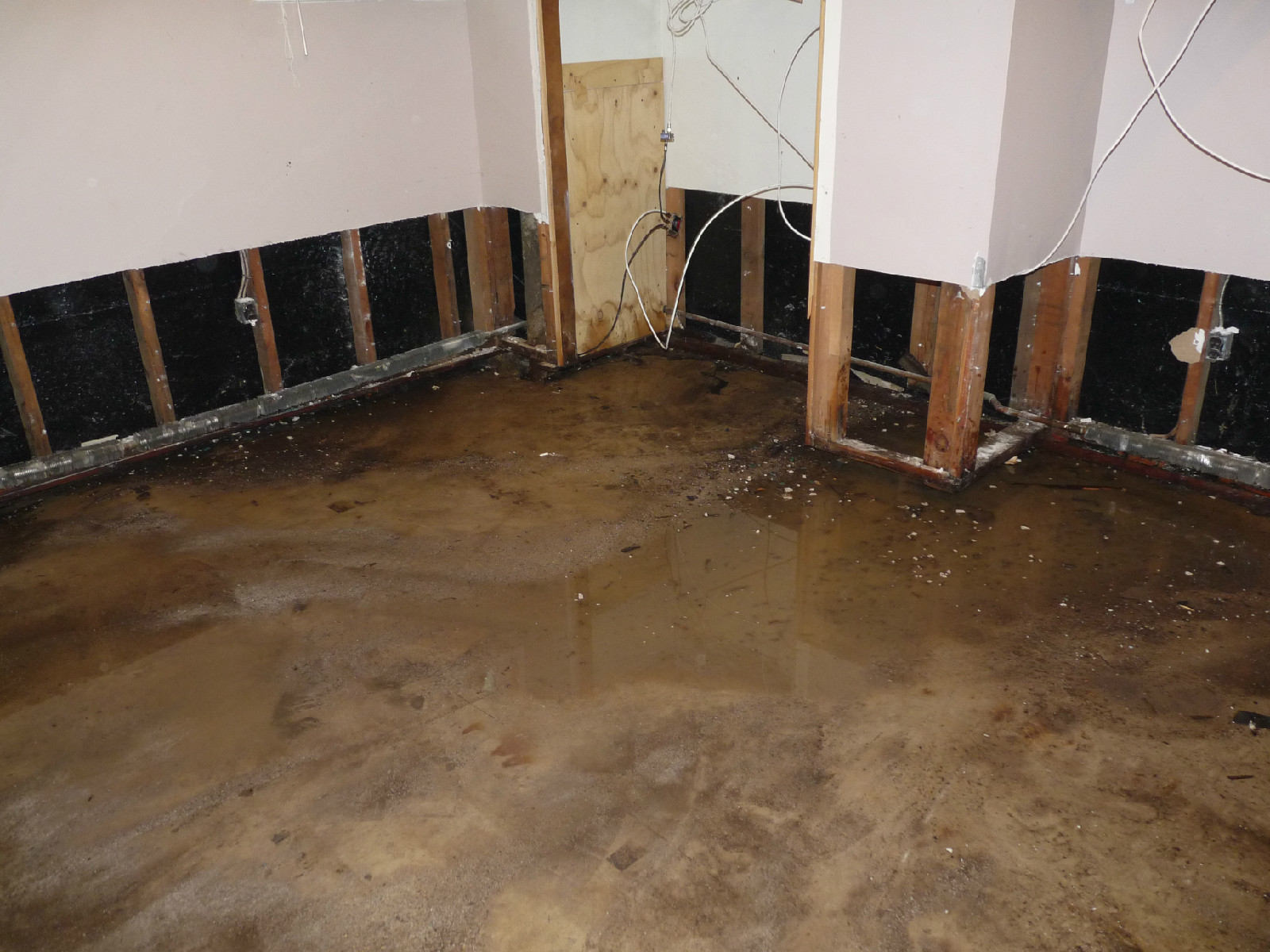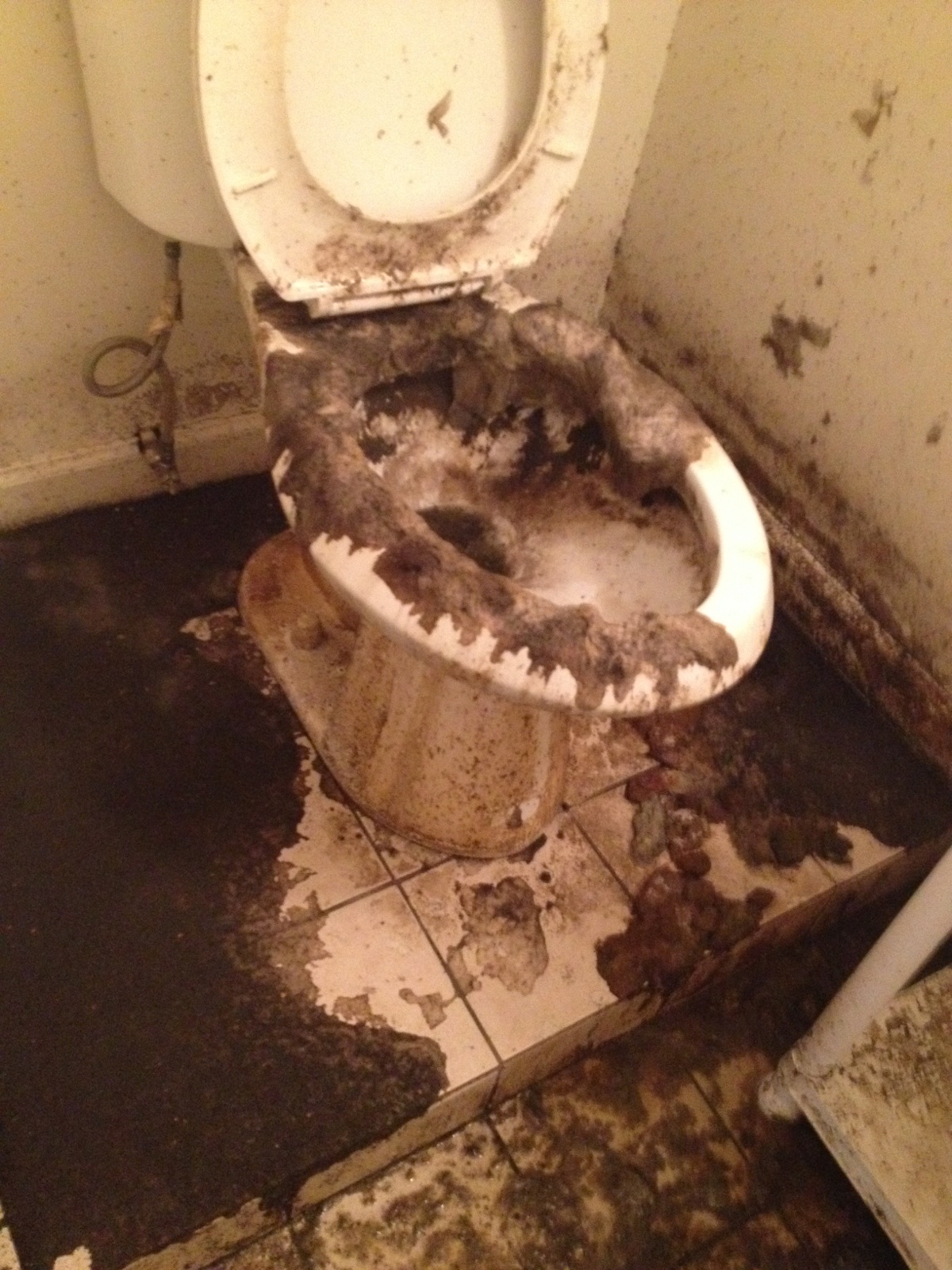Have no idea what to do when a pipe bursts? Do you run around frantically trying to save family albums, your child’s first toy or favorite stuffed animal, or your grandmother’s precious heirloom porcelain doll collection? Do you secretly move that ugly chair your husband has had since college underneath the torrential flow? All joking aside, a burst pipe can do some serious damage to your home and its belongings. Mold, bacteria, and other fungi grow rapidly in such ripe conditions. If you react quickly enough, you can save yourself a massive headache and money by doing these four things.
Cease and desist!
The minute you suspect a leak or notice that you have raging gush spewing forth from the bowels of your plumbing system – shut the main water tap off. Once you’ve found it, you should then turn off your water heater, turn on your hot and cold taps, and flush your toilets. You want to get all the water out of your pipes. Here’s a life-saving tip: If you see water near your electrical appliances or creeping up towards your outlets, shut the electricity off. You don’t want to see what happens when electricity and water mingle.
Search and destroy
Okay, you shut the water (and electricity) off. Now, you have to play detective and follow the clues to find where the water originated. Honestly, this can be a little time-consuming, but if you catch it early enough, you’re saving yourself from a major hassle. Look for drips, cracks in the wall, or bulges in your ceilings. Be careful with that last one as there can be a lot of water behind that sheetrock.
Leave it to the professionals
Don’t try to fix these things yourself…unless you’re a licensed plumber. JP Moore’s team is trained in knowing what to do when a pipe bursts and how to correct it. You might be tempted to rent a pump, open the windows, and do it yourself, but you may put your family at risk of serious health issues later on. When carpets, walls, and furnishings become saturated, they create the right conditions for mold and other microbial growth. These can cause respiratory problems, itchy skin, allergic reactions, and hay fever like symptoms—especially in children and the elderly.
So, this is why you have homeowner’s insurance
Let’s face it, you don’t want to do this, but you’re going to need to call your insurance company – especially if the damage is extensive. Get out your phone, camera, or camcorder and start documenting the damage. Your agent will come out and do the same, but it’s good to have that documentation in hand to back up your claim.
Prevention is the key
Once your home is back to normal, start finding out what you can do to prevent an encore performance. It’s great you know what to do when a pipe bursts, but that doesn’t mean you ever want to go through it again.



